Eminem Producer Uses RipX DAW – The Swiss Army Knife Of Music Software To Stay Ahead Of The Game
An interview with DJ, producer, mix engineer and writer DJ Head – Eminem, Dr Dre, Obie Trice and Bill N Isiah.
“I like that RipX DAW is a Swiss Army knife! I’m able to use it in various ways, for different work scenarios from teaching to mixing to sound experimentation, etc. Being able to deep dive into editing, audio mangling and midi in one workspace is huge for me! I don’t have to rely on several different programs, plugins or hardware to accomplish one task. I’ve even set RipX DAW as my Sample Editor in Ableton Live.”

After attending an after school program and taking piano lessons aged 7, mainly to keep him occupied and focused, Kevin Bell AKA DJ Head soon joined a band, and regularly listened to and became influenced by his family’s extensive and interesting record collections.
“I first discovered The Meters who soon became my favorite band of all time. I’ve always played their 45s in my parents’ collection.
Some of my other influences include The Mizell Brothers. Every time I hear one of their records it puts me in a creative thinking zone. The Electrifying Mojo (Radio Jock) opened my ears to more than just urban music. I will never forget the Intros to his show! His radio shows were EPIC! The Wizard aka Jeff Mills. Every time you heard him on the radio It was a master mix of blends, scratching, doubles, etc.. I would get geeked when he was on the air! How is he doing that? Jimmy Jam & Terry Lewis. Decades of impact and longevity!
Herbie Hancock. His ability to adapt to technology and make it funky. Steely Dan. The records sound and feel so damn good anywhere! The X-Men (The Unknown DJ & DJ Slip) combined worlds of comics, electro and hip hop on wax. Things that I love! The music felt like an adventure and I could never stop looking at the covers. Pal Joey. I wanted to produce records like him! He had house joints, rap, hot remixes, etc…DJ Premier – it’s primo! He never disappoints! Organized Noize. Their sonic blueprint is A1. Multi-dimensional and still going. Brian Kidd – a quality resume. Not one bad track in his discography! Rich Harrison. The way he flips samples that I like into commercial hits.”
But piano lessons and being in a band proved to only be a few small pieces of a much bigger puzzle, alongside a combination of events and crossing paths with some influential people.
“I met Proof in grade school, but I would later reconnect with him through a mutual friend and rap artist that I met while DJing at College.
Back in high school and college, I would carry crates and equipment for my cousin, who is a popular DJ in Detroit, including various other DJs. Doing that put me right there in the center of the action to learn from many OGs. I was taking it all back home, and working at it on a smaller scale while in college.”
Kevin would even buy issues of Keyboard magazine if there was someone on the cover of interest, like Herbie Hancock. One particular issue of Keyboard mag that he bought had Public Enemy on the cover.

“I had read that article over and over because it explained everything I wanted to know about making rap records. The only problem was that I didn’t have thousands of dollars to buy an MPC, SP1200 or studio time. I remember the article talking about looping, and somehow made a technical connection between Grandmaster Flash in Wild Style and watching Djs in Detroit make overdub mixtapes with two cassette decks. This is how I started making my first beats.”
About a year later, his cousin told him about a friend of his selling a SP12 for $600, so Kevin saved up the money from playing gigs, and made the purchase.
“I soon found out that it was not the exact SP from the article. What I needed was the SP1200! The only catch was that the drum machine was only available on the used market so I was stuck with the SP12, and just learned the ins and outs of it. Plus, it was a huge step up from using two cassette decks anyway! About another year later, a friend of mine told me he had seen a SP1200 at a music store in Detroit for $1500. Problem is I didn’t have $1500 cash, but I had two credit cards with $1000 each in available credit, so I drove to Detroit and bought it!”

After graduating from college and working a variety of day jobs, Kevin maintained an extra income in music via DJing and beat-making.
“I would get a little money from music here and there, but nothing to live off of, especially with student loans needing to be paid. But little did I know that my investment into the SP1200 and reconnection to Proof while in college would change my life.
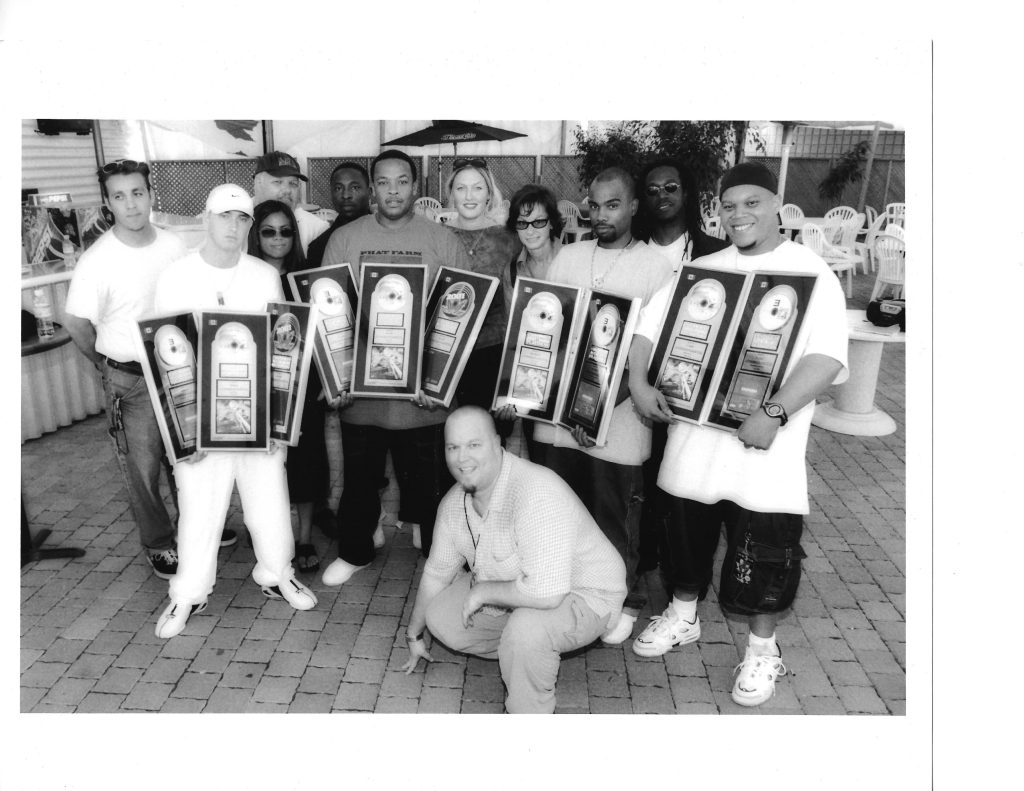
I eventually met Eminem through Proof while I was DJing at the Hip Hop Shop Open Mic Battles. I think the Backstabber cassette might have already been out and he was working on the ‘Infinite’ album. Proof had called me up because he wanted to borrow the SP1200. I met him at this studio on ‘8 Mile’ a couple of blocks from the house. I had no idea there was a studio there because I had been passing this building my whole life. But this is where Eminem was recording ‘Infinite’.”
In one of those sessions, the WEGO skit was recorded, because Proof and had a mixtape series they put out called WEGO. Recording that promotional skit for ‘Infinite’ was his first time in a session with Eminem. And the rest is history.
“At that time, beat tapes from various DJ’s, producers and beatmakers were always in circulation within the scene. A lot of dubs (tapes) were floating around the city, and we all used the same studios, hung out in the same spots and performed at the same venues. It was kind of a thing, where rappers would have various beat tapes from whoever to write original material to.
Now, it was pretty common to take road trips to NYC to make connections, shop demos, etc. On one of those trips, I rented a car and Eminem, Bizarre, Theory and I drove out there for that purpose. I always had tapes in the car for music to listen to on the drive, plus I had my beat tapes to pass out. I had put my tape in the deck for something to listen to, and the “Just The Two Of Us Beat” was playing. Eminem had asked me about the beat, because he had already heard it. He was explaining the song to me while I was driving, and I think he even rapped some of it to me. I had no idea! Well the beat wasn’t being used, and I really liked the concept, so when we got back to Detroit, I took the SP1200 to the studio and tracked the beat out. Everything that Eminem explained to me ended up being that song!”
After “Just The Two Of Us” was recorded, Eminem was explaining the Slim Shady project to Kevin who understood the direction and from there on in, he would just keep giving him beat tapes.
“If there was something he was feeling from the beat tapes, I would go to the studio, and record it to tape. Sometimes he would come by the house, while I’m making beats from scratch back to back. I’d say “Em, Just stop me if there is something you like”, save it on a floppy and put it to the side.
Also, in the middle of all of this, the hip hop shop had closed, and a door opened for a job at Car City Records on the weekends. While working at Car City, I had access to even more records to sample. Some of those samples I would use on the Slim Shady EP and many other Eminem-related projects. Once the Slim Shady EP rollout was in motion, the rest is history with Dre and Aftermath.”

Kevin also met J Dilla in passing a couple of times.
“Proof made the connection official. Everyone was into the same thing; digging, DJing and beats. All of us were trying to pull resources from wherever to make music. Jay would have records and equipment I didn’t have, and vice versa. A basement full of records, turntables, mixers, track machines, cassette decks, an SP1200 and off-the-wall thinking (beat battles)! Some of those beat battle beats would even become actual songs that got released!
But although growing up in Detroit and listening to The Wizard and Mojo on the radio, meaning all kinds of genres were being mixed into one, most of Kevin’s musical focus was on the hip hop scene.
“It wasn’t far-fetched to turn the radio on and catch the Wizard in the mix. He was playing Model 500 > Run DMC > Funkadelic > B-52’s > Prince > Lisa Lisa > Devo > 2 Live crew > Basstronic > Captain Rapp..,… But at college, Hip Hop became more present for me because it was just a different space. Plus, I didn’t really have access to Detroit radio like that, except for going home on the weekend here and there and on holiday breaks. Now an opportunity to be a part of the cultural vibe (the hip hop radio show @ MSU) also kind of swayed me further towards the genre. The labels and street promoters were very heavy with sending rap promo vinyl to the station for us to play on the air. By my junior year, I was primarily spinning rap vinyl in the mix.”
But when it comes to sampling, vinyl and chopping is Kevin’s preferred workflow.
“I love sampling from records, because those artists that recorded those records put their heart, soul and A-Game into delivering the best performance on wax. You get a lot of one of a kind energy from all involved! The chopping aspect comes from having the SP1200 and being limited with sample time and technology. You’re not going to loop a 4 bar sample in that machine. So the workaround is to chop it into pieces and flip it into your own 4 bars.
It just became a natural habit when sampling for me. The cool thing about chopping is that you can control the sample vs looping which kind of has a limit. The loop can loop perfectly, but if one of those musicians drift in a section of the loop, then things can be off.”
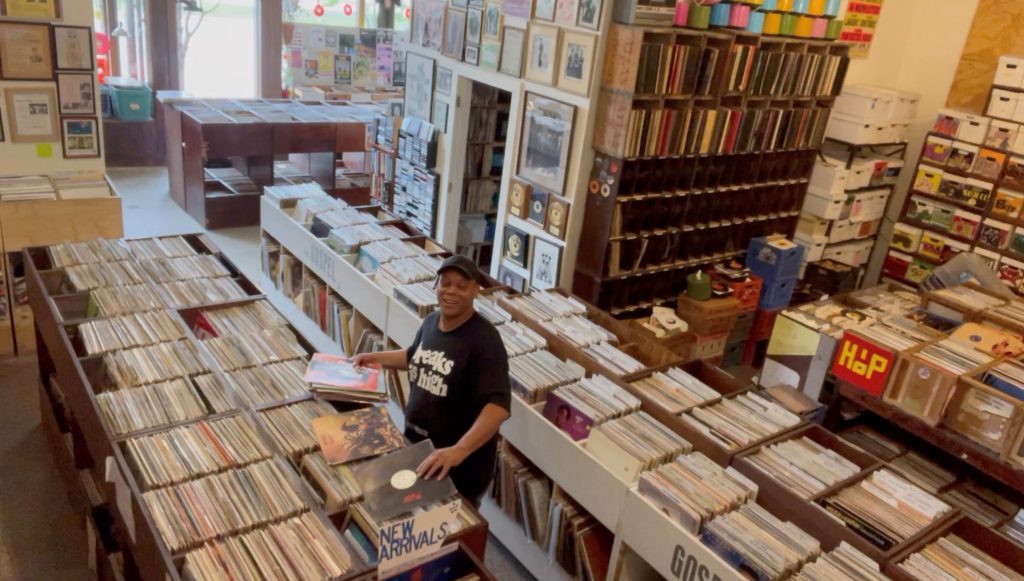
As for his preferred production and songwriting techniques?
“With all elements of music making for me, it’s pretty much just living daily life that provides plenty of goods for the soul. I’ve had many split second experiences that have given me great ideas. A lot can happen as soon as you step out of your front door.
Also – DJ gigs! For many years, every gig I’ve ever done has involved studying the audience. If it’s a rap battle, TV, tour, Corporate Top 40, techno, weddings, birthdays, graduations, tailgates etc… I’m STUDYING! There is a lot going on when DJing, and I’m soaking it all in. The record store! I work at Peoples Records in Detroit, and being there is being knee deep in a church of musical energy just like Car City Records! There’s vinyl, books, collectibles, old friends, new friends, DJ’s, musicians, producers, engineers, promoters, artists etc. I learn something new every time I go into work! Finally – minimalism. Keep it simple and to the point!
I take all of this and try to make the best product possible that people can enjoy!”
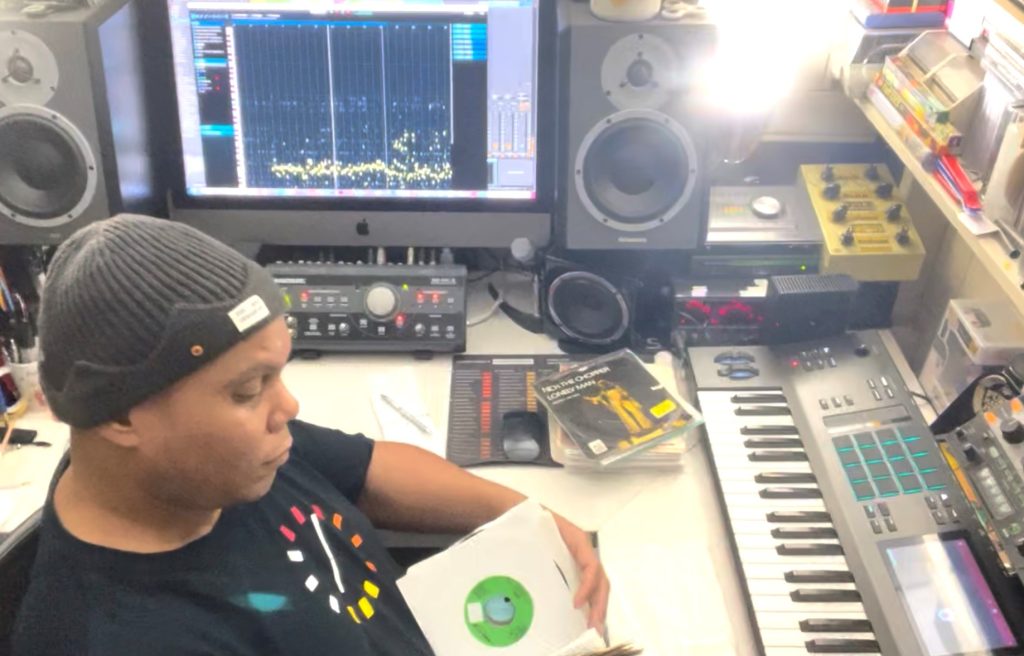
As for RipX DAW – what are his thoughts on the software?
“I like that RipX DAW is a Swiss Army knife! I’m able to use it in various ways, for different work scenarios from teaching to mixing to sound experimentation and more. Being able to deep dive into editing, audio mangling and midi in one workspace is huge for me! I don’t have to rely on several different programs, plugins or hardware to accomplish one task. I’ve even set RipX DAW as my Sample Editor in Ableton Live.”
As for recent projects, “Valid & Stretch Money” by Bill N Isiah is a concept album that brought him full circle and back to his foundation of growing up in the 1980s.
“It’s a modern twist on a period of my life. I finally realized how I approached work for many years, and it’s about painting the picture! At the moment, I’m still involved with the Hip Hop scene in various ways. I’m still DJing, recording, developing and providing my off the wall thinking.
Having said that, I’ve been heavily dealing a lot with the funk and soul scene because it goes right back to things that make me smile like digging for rare records and playing vinyl. Those vinyl throwback gigs are fun because the audience that comes to those events are a wide demographic of people! It’s the mashup of all the things I like. The audience is loyal and an extended family that really supports each other. I really like that the artist and audience aren’t really following popular culture. There’s a lot of independent things taking place on many levels in Detroit!”
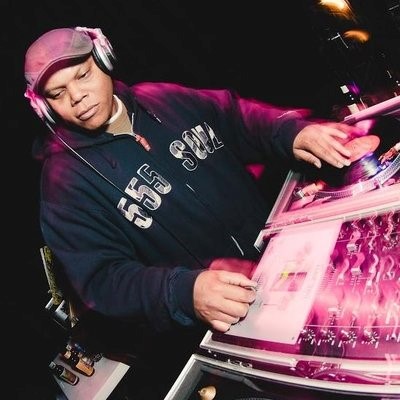
Any thoughts or predictions on the future of DJing and music in general ?
“Hopefully A.I. doesn’t collect enough data to take us DJs or artists for that matter, out of business. There is a constant flow of data that can calculate a decision for what songs to play next for the audience. Hmmmm…….
Technology is allowing for more and more independence. I’m pretty excited because it challenges us to expand and see what other styles of music will be created! As computing becomes more powerful with time, technology will hopefully have the power to really get back to the analog feel and sound in the box. Character and feeling are still light at the moment with new tools, but I think things are getting there.”
And finally, if DJ Head could offer one key piece of advice to anyone starting out in the music industry, what would it be?
“Stay ahead of what everyone else is doing. It’s good for progression. Dig-in to you, to push the envelope and inspire!”
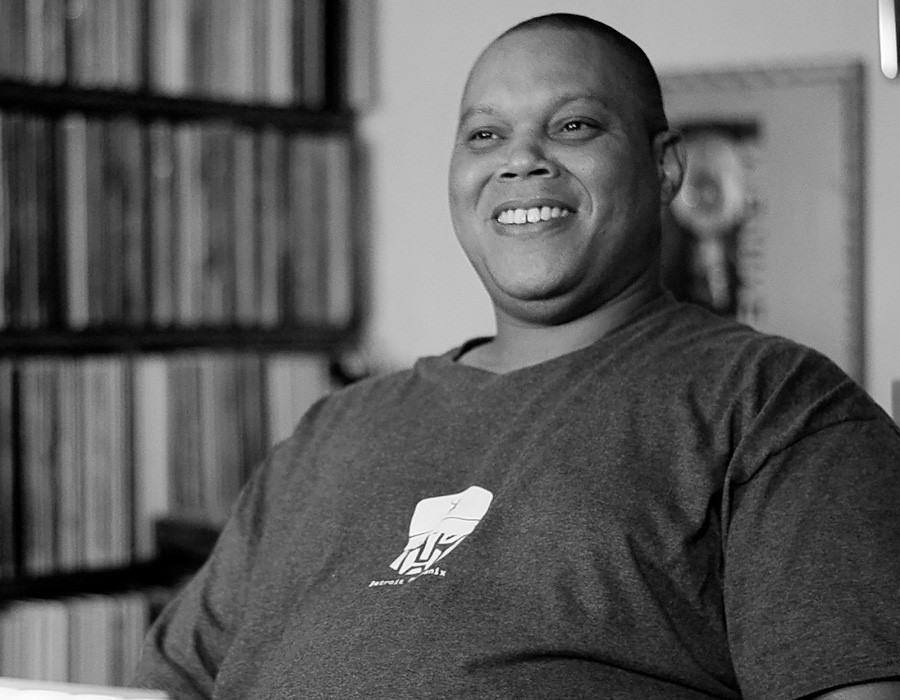
Find out more about DJ Head HERE.

I hear you loud and clear on the Detroit funk and soul scene! The way you describe it, digging for those rare vinyl gems and then witnessing the joy it brings at throwback gigs sounds absolutely infectious.